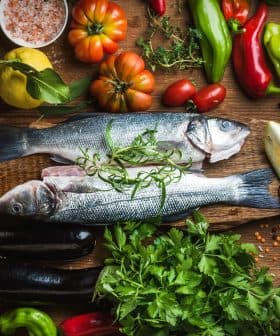Greeks Moving Away from Med Diet, Survey Finds
The eating habits in Greece have been sharply influenced by the financial crisis and global nutritional trends.
The financial crisis in Greece has led to changes in dietary habits, with consumers turning to more affordable food options and younger individuals moving away from the Mediterranean diet staples. The crisis, along with modern eating trends and influences from media and family, have contributed to a decrease in spending on traditional Mediterranean foods like olive oil, fruits, and vegetables.
Eight years of a financial crisis that shook the world and almost bankrupted Greece, have also left their mark on the dietary habits of Greek people. A survey found that consumers turned to more affordable food, and the younger among them have started to drift away from the staples of the Mediterranean diet.
However, the crisis is not solely responsible for the change, as modern eating trends have gradually downgraded the dining routines of consumers in the country.
The Research Institute of Retail Consumer Goods did a survey among 2,000 people in Greece. It was found that their dietary habits have been heavily affected by the financial crisis, both in terms of value and volume. Money spent on food decreased by 21 percent from 2010 to 2017, while the quantity of food purchased went down by 15 percent during the same period.
An important outcome of the research was that consumers have started to disavow meats like beef and lamb as their main source of protein, turning to cheaper options like poultry and legumes. They also prefer more pasta and rice than before, while on the other hand, they have cut down on sugar by 44 percent overall.
Consumers lowered their olive oil intake by 18 percent during the eight years, and consumption of fruits and vegetables was also reduced by 23 and 20 percent respectively.
The researchers held the financial crisis responsible for many of the pattern changes, since it affected their purchasing power and shifted their buying preferences to cheaper products.
Furthermore, it was found that consumers are also affected by other parameters, like TV programs about food, social media, advice from supermarket staff, and the press. But more than anything they are affected by their families, as one in two consumers said their parents and other relatives were their main sources of food information.
The survey also showed that the Mediterranean diet appeals more to elder consumers, while half of those who are younger than 35 years old tended to prefer a variety of cuisines.
This depicts a global trend, the researchers noted, where the internet and the social media can deliver information from around the world which would be almost impossible to reach in previous decades, influencing the habits of (mostly) the younger among us.
The situation is ambiguous, and no certain pattern can be derived from the survey results.
The majority of the respondents stated that they prefer food that is good for their health, yet they have been moving away from Mediterranean diet principles by buying less olive oil, and fewer fruits and vegetables, even when prices of the two have dropped in recent years.
They buy more legumes, another Mediterranean diet staple, but this is more a repercussion of the crisis than a conscious selection.
The survey concluded that consumers try to balance their desire for healthier food with their lacerated budget. On the other hand, other factors like television, the internet and the press can significantly affect consumers, driving many to other pathways than the Mediterranean diet standards.









